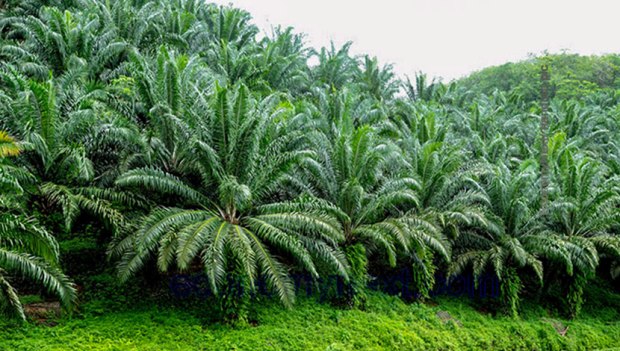COLOMBO – Sri Lanka’s large commercial plantations companies are sitting on imported oil palm plants worth Rs 300 million that cannot be planted due to a ban imposed by the State.
Though Sri Lanka had been planting oil palm for over 50 years, there had been a global backlash against the industry largely due rainforest clearing in Malaysia and Indonesia in favour of the crop.
“..[T]here are currently almost Rs 300 million worth of plants in company nurseries for which seed materials were imported only after having sought out all relevant approvals from authorities,” Sunil Poholiyadde, the immediate past president of the Sri Lanka’s Planters’ Association, which represents the companies, told members at its annual meeting.
“Although the plants are now totally overgrown, it would be prudent if – at least at this juncture – a decision could be taken to allow the companies to at least plant what is already in the nurseries so as to recover even a fraction of the investments made into this crop.”
President in a policy statement in 2020 said all palm oil cultivation would be banned and incentives given for coconut.
In Sri Lanka several environmental organizations oppose the expansion of oil palm.
The plantations companies insist there is no scientific basis for the claims made. The output of oil palm however is better in areas of higher rainfall.
Sri Lanka’s regional plantations companies, which are privatized on a long leases agreed with the government a few years ago to plant 20,000 new hectares of oil palm.
“Unfortunately, after having completed almost 11,000 hectares of this expansion, there is now a ban on any further planting or replanting of oil palm,” Poholiyadde said.
“This is again due to numerous misconceptions regarding environmental hazards.
“On numerous occasions, our association has called on those who oppose oil palm cultivation on such grounds to produce the evidence on which they have made such claims so that we might be able to objectively consider the merits of such claims and take policy decisions that are first and foremost grounded in science.
“To this day such evidence has not been forthcoming.”
There is renewed interest in Sri Lanka in oil palm due to artificially high prices for edible oils coming from import taxes imposed to protect coconut landowners, who have political clout.
Economists call this an un-intended consequence of a state intervention.
In Sri Lanka oil palm is not planted on virgin forests but mostly on old rubber tracts, which is an export crop.
Rubber prices have fallen from their highs of about 600 rupees a kilogram when monetary policy was loose in the US and commodity prices including oil price were also high.
The plantations companies say higher rainfall in recent years had reduced tapping days and the sector is also facing an outflow of workers, both of which makes palm oil a more attractive crop.
Many small holders have stopped tapping after prices fell,
These dynamics forced many smallholders to stay out of production, however, since the RPCs have a permanent labour cadre, they were forced to offer work and harvest latex in order to keep the workers employed even though the cost of production is much higher than the sales average at auction.
-economynext.com


